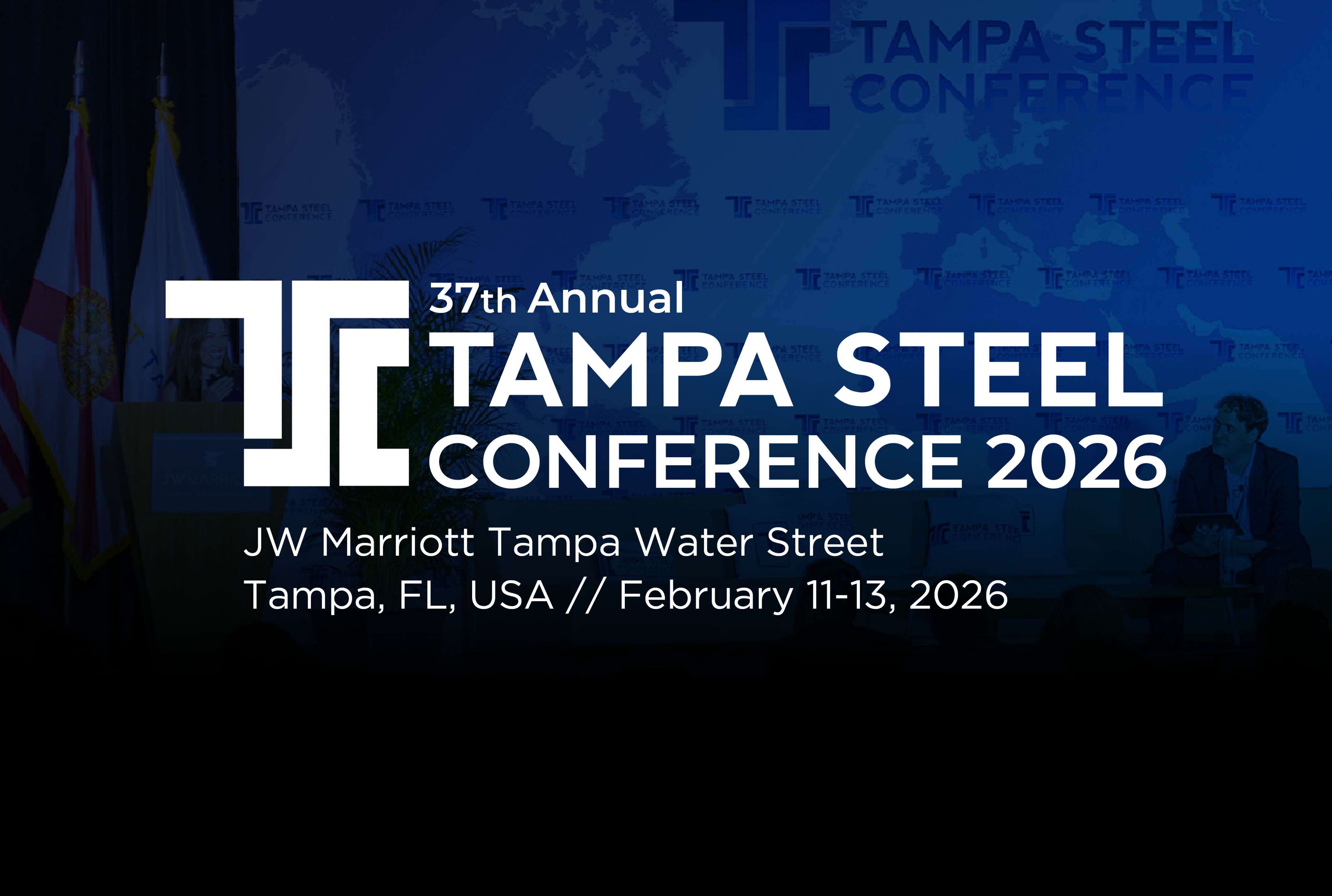Community Events

April 10, 2022
Ryerson CEO: Strong Demand, Higher Prices Ahead for Steel
Written by David Schollaert
Despite economic and geopolitical headwinds, there remains tremendous opportunity for steel and industrial metals distribution, Ryerson president and CEO Eddie Lehner during the most recent Steel Market Update Community Chat webinar.
![]() There might be debate over where rising finished steel prices will settle. But gone are the days of hot-rolled coil averaging around $600 per ton ($30 per cwt), Lehner said.
There might be debate over where rising finished steel prices will settle. But gone are the days of hot-rolled coil averaging around $600 per ton ($30 per cwt), Lehner said.
“The ten-year average for HRC was around $600 going into 2020. But the averages now are moving much higher,” he said. “Just given the overall uncertainty and volatility at hand, it’s hard to say that prices will normalize. I still think we’re in for a period of extreme price oscillations, at higher levels, as we navigate these unprecedented times.”
Ryerson is a Chicago-based steel and industrial metals service center. The company employs approximately 4,000 people across 100 locations in the US, Canada, Mexico and China.
Lehner said 18th- and 19th-century scholar and economist Thomas Malthus might have the best description of current market conditions, which have been shaped by the Covid-19 pandemic and the war in Ukraine: “Famine, disease and warfare will be perennial problems for the human experience.”
But one thing hasn’t changed over the centuries. Fortunes will continue to be made by the nexus of humans and machines – in other words, by manufacturing. “The relationship between machines and people creates the most utility and wealth in every historical example you cite,” Lehner said. “Manufacturing and industrial metals is perennial, and it is more important today than ever.”
Demand for steel and industrial metals is strong and will remain strong over the long term even if interest rates rise, Lehner said. “Consumer confidence is high, unemployment is low at 3.6%, and customer demand is strong. The probabilities of a recession are rising. But demand is poised to remain strong for the next couple of quarters.”
The key to managing price fluctuations is keeping a close eye on lead times, especially with so much uncertainty surrounding everything from delivery times to customer demand forecasts. “I think you probably don’t want to take long positions, or short (ones) for that matter. I think you need to buy to lead times right now,” he said.
Turning to the big picture, Lehnser said trade policy, climate change and renewables would remain center stage. That’s especially the case now given the quick reshaping of decades of trade policies following the war in Ukraine.
The changing trade landscape should bode well for the US and its North American neighbors. “We aren’t looking to source offshore aside from the small niche we do. Though imports are up, they’re nowhere near the levels we saw in 2014. But prices will remain at elevated levels, particularly when we look at them through the lens of the past 10 years,” Lehner said.
US trade policy in particular will be designed to benefit “countries that are deemed to be more democratic,” he said. “I think those countries will trade more with one another. … I would expect Mexico’s economy to grow above trend.”
As for raw materials, there is no denying that the growth in electric-arc furnace (EAF) steelmaking will result in increased scrap demand. But Lehner thinks that scrap supplies are robust and that supplies of cleaner metallic inputs will expand to meet increased demand from EAF steelmakers in North America.
Editor’s note: Missed the Community Chat with Eddie Lehner? No problem. Click here for a recording of this and past SMU webinars.
By David Schollaert, David@SteelMarketUpdate.com






